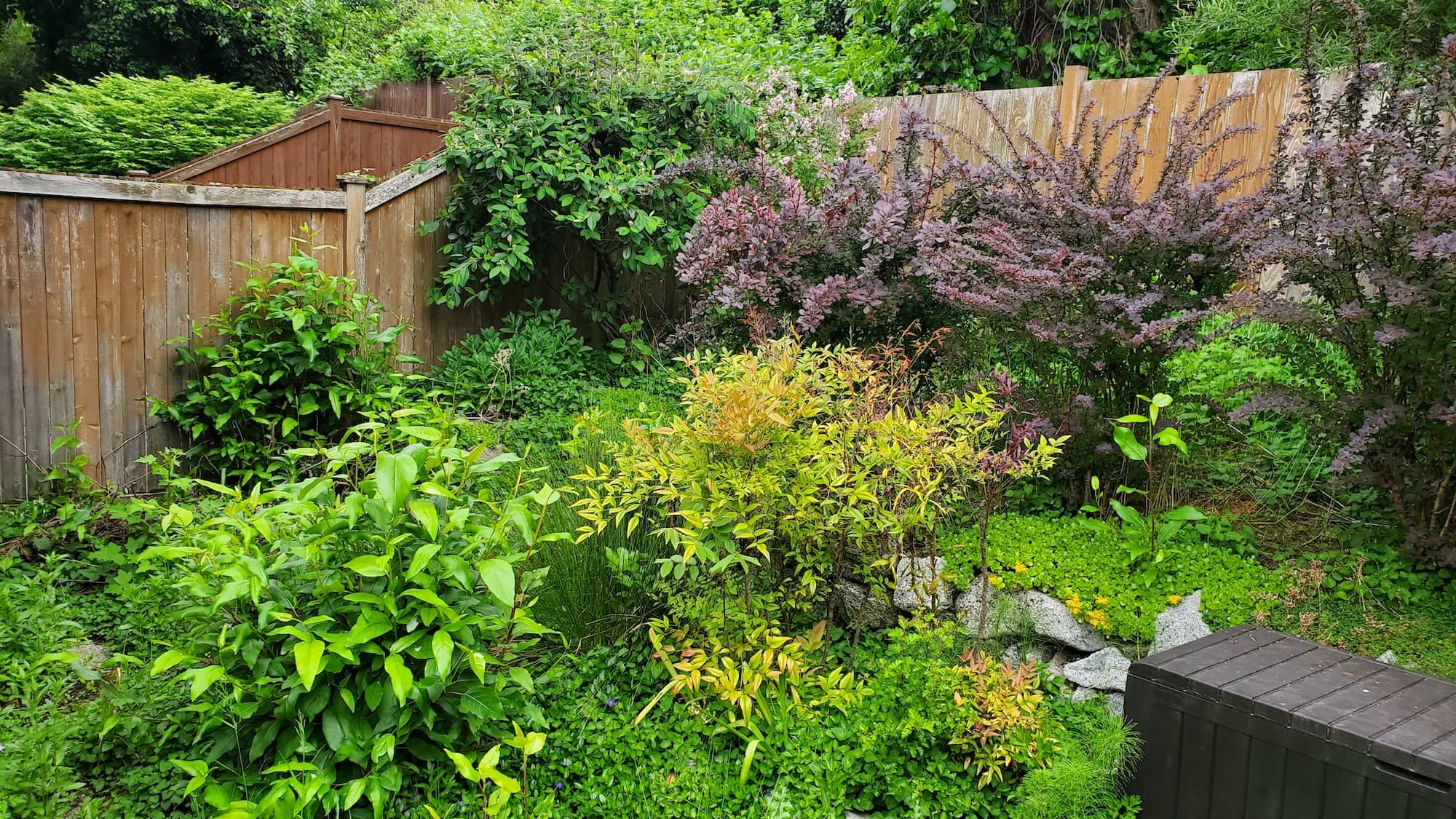West Seattle Corn gluten pre-emergent
Homeowner’s Issue
West Seattle yards are a unique mix: compacted glacial soils over clay pockets, steep lots on Fauntleroy and the hills around Alaska Junction, and coastal exposure near Alki and Lincoln Park. Frequent fall and winter rain keeps the soil wet and moss-friendly, while summer sun pockets around Admiral and North Delridge create drier, stressed turf. Many homes have heavy shade from big cedars and maples, which reduces turf competition and lets clover, chickweed, and annual grasses move in. Slopes and terraces mean runoff takes seed and soil downslope, so weed seed beds re-establish quickly after winter storms. HOAs and curb-facing properties demand tidy edges, but aggressive chemical herbicides can wash toward Puget Sound and our storm drains.
Corn gluten meal is a non-toxic, sustainable pre-emergent option that reduces seed germination while adding nitrogen. It won’t pull up established weeds — so timing and prep matter here. In West Seattle we time applications to local degree-days and dry windows between storms, combine them with organic soil improvement, and focus on erosion-prone areas. The goal is a pet-safe, low-tox landscape that holds up through our rainy season without synthetic herbicides and with methods that work on slopes, shady lawns, and salt-sprayed edges alike.
Our Quality Service
We apply corn gluten as part of a holistic, sustainable program: assess, prep, apply, and follow up. We use broadcast spreaders for even coverage, hand-weed or spot-treat infestations mechanically, and amend thin turf with organic fertilizer and overseeding where needed. For sloped or eroded sites we add soil-building compost and tack-in mulch to lock soil and seed in place.
Typical timeline: on-site assessment (1 visit), prep and first application (1–2 days), follow-up check 4–6 weeks after application. Seasonal repeats depend on bed/lawn history — often spring and late summer applications. We avoid synthetic herbicides entirely and adjust timing around West Seattle rain windows and seasonal water restrictions.
Benefits: reduced seed germination, safer play areas for kids and dogs, improved turf vigor from added nitrogen, reduced chemical runoff risk, and longer-lasting curb appeal.
What’s Included
- Site assessment and germination-risk mapping (sun/shade, slope, drainage).
- Rake/clear debris and hand-remove existing seedlings before application.
- Even broadcast application of corn gluten meal at recommended rates.
- Post-application instructions: watering, mowing, and overseeding guidance.
- Clean-up and haul-away of green waste.
Options / upgrades:
- Mulch + weed fabric (beds) for added suppression.
- Organic topdressing or compost to improve soil structure.
- Aeration and organic overseeding for thin lawns.
- Haul-away vs. green bin disposal for removed debris.
- Ivy/moss mechanical removal and replacement planting with native groundcovers.
Before & After / Expectations
Expect some short-term brown dusting after application until watered in; corn gluten needs light irrigation to activate. We won’t see an immediate “weed-free” yard — corn gluten prevents new germination, it doesn’t kill mature weeds. If your lawn is thin or dominated by perennial weeds, we’ll plan mechanical removal and overseed, which can take 4–12 weeks to show improvement.
On-site realities: there will be noise from tools, foot traffic on turf, and some temporary mess while we clear beds. Access to water for light irrigation within 24–48 hours helps results; if you have steep access or narrow gates, tell us in advance so we bring the right gear.
West Seattle care tips: water lightly within 48 hours when a dry spell appears; expect highest weed pressure after late-winter storms and again in late summer; moss and ivy need mechanical control and improved drainage or shade-tolerant plantings to stay away.
FAQs
Q: Will corn gluten kill existing weeds?
A: No. It prevents seeds from germinating. We remove established weeds by hand or mechanical means before applying.
Q: How long until I see results?
A: You’ll see fewer new seedlings in 4–8 weeks after correct timing and irrigation. Turf thickening from overseed or compost can take a season.
Q: Does salt spray or slope affect effectiveness?
A: Salt-exposed edges may need salt-tolerant plantings instead of turf. On slopes we combine corn gluten with erosion control and soil amendments to hold seed and soil.
Q: Is this safe for pets and kids?
A: Yes — corn gluten is non-toxic. We use no synthetic herbicides.
Q: Do you obey HOA rules and stormwater regs?
A: Yes. We work with curb-appeal requirements and avoid practices that increase runoff or use prohibited chemicals.
Call to Action
West Seattle homeowners: if you want a pet-safe plan that actually reduces seedlings and improves your lawn over time, book a free estimate. We schedule around dry windows and neighborhood constraints from Alki to Admiral. Quick scheduling, local experience, and practical, sustainable methods.
Email: neatandtidyseattle@gmail.com
Phone: 206-538-9344
Ready for a tidy, low-tox yard? Send photos and a short description of slope, shade, and problem areas and we’ll reply with next steps.










